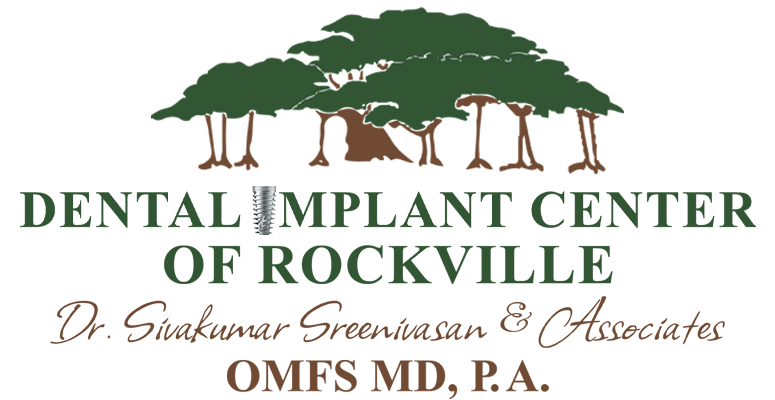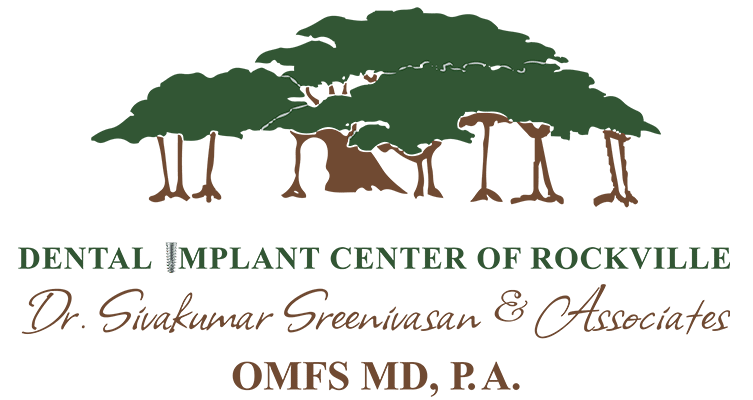What Kind of Doctor Treats TMJ?

TMJ stands for the temporomandibular joint, which is the place where your lower jaw attaches to your skull. TMJ disorder occurs when this joint is injured or becomes inflamed. Symptoms include pain in the jaw, headaches, limited motion of the jaw, and/or a clicking or popping sound when you open your mouth.
If you have symptoms of TMJ, you may be wondering who you should see about it. Do you call your primary care physician? A dentist? An oral surgeon? Here’s what you should do if you think you may be suffering from TMJ disorder.
Oral Surgeons Specialize in TMJ Disorder and Treatment
Your best option for diagnosis and treatment of TMJ disorder is to go to an oral surgeon. A general dentist can diagnose TMJ and provide some treatment, but an oral surgeon can provide a full range of treatment options. If your TMJ disorder is severe, potentially requiring surgery, an oral surgeon is the specialist you’ll need to see.
Treatments for TMJ Disorder
There are many different treatments for TMJ disorder. The right treatment for you depends on the severity of your condition.
- Minor cases: apply ice to your jaw, take anti-inflammatory pain relievers, eat soft foods, and rest your jaw as much as possible.
- Moderate cases: if the above remedies do not relieve your TMJ symptoms, you may need prescription medication, steroid injections, and/or a mouthguard to cushion your jaw.
- Severe cases: if none of the above treatments work, you may need surgery. An oral surgeon can repair the temporomandibular joint through surgical means. Surgery may entail removing scar tissue, repairing tendons and ligaments, and relocating the disk that cushions the joint.
Causes of TMJ Disorder
If you have TMJ disorder, you may wonder what caused it. There are a number of different potential causes for TMJ:
- Injury. If you had a blow to your jaw, such as in a car accident or a fall, it can knock your jaw out of alignment and put strain on your TMJ.
- Teeth grinding. If you grind your teeth at night, the pressure on your jaw can take its toll on your TMJ. Clenching your jaw tightly will have the same effect.
- Constant chewing. Do you chew gum or munch on hard foods frequently? Constant chewing can cause your TMJ to become irritated or inflamed.
- Recent dental work. Have you had dental work done recently where you had to hold your mouth open for a long period of time? This can put a lot of strain on your TMJ, resulting in inflammation.
- Health conditions affecting the joints. If you have arthritis or an autoimmune disease that affects the joints, it may also affect the TMJ. Pain and inflammation in the jaw joint is often associated with these conditions.
How to Prevent TMJ Disorder
There are steps you can take to prevent TMJ disorder or to keep it from returning after treatment:
- Wear a mouthguard. If you grind your teeth at night it can help to wear a mouthguard to absorb the impact and lessen the pressure on your jaw.
- Avoid chewing gum or hard foods. Don’t chew gum if you know you suffer from TMJ disorder. Avoid other hard foods like nuts, chewy candy, or jerky.
- Make sure your joint conditions are under control. If you have a health condition that causes joint inflammation, see your doctor regularly for treatment. These conditions can be controlled with medication and other treatments.
- Talk to your dentist or oral surgeon as soon as you experience symptoms. TMJ is much easier to treat when symptoms are minor. As the condition progresses it becomes more difficult to treat, so contact your dentist at the first onset of symptoms.
The Dental Implant Center of Rockville Provides TMJ Treatment
If you have symptoms of TMJ disorder, the Dental Implant Center of Rockville specializes in diagnosis and treatment. We provide a wide range of treatment options for TMJ as well as oral surgery if necessary.
Call 301-294-8700 today or request an appointment. We look forward to providing you with relief from your TMJ symptoms.
Recent Posts
Contact Us
Twice a Month

